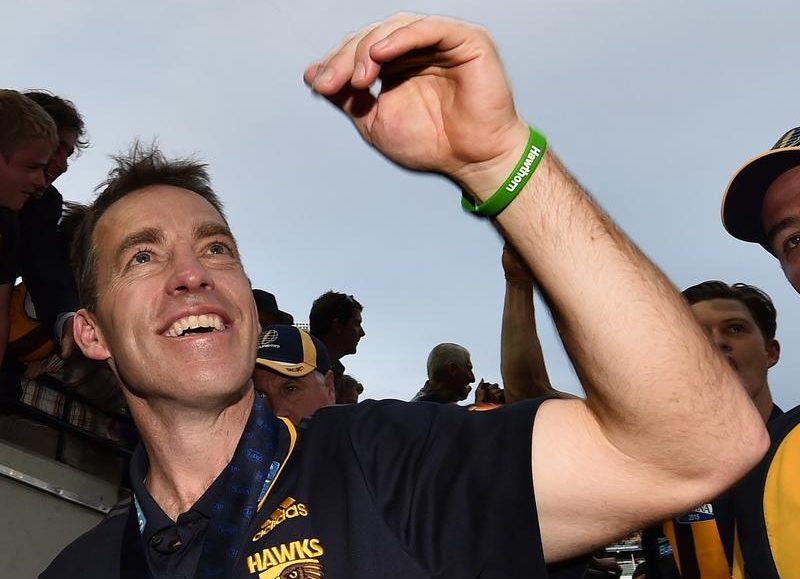
One AFL coaching genius spoke of martians and marshmellows.
Another disliked long hair so much he ordered a player to get a cut – at halftime.
Yet another quoted Confucius and the Chinese general Sun Tzu; one more reckons suffering is the path to success.
They’re a rare breed, the all-time greats of AFL coaching.
Jock McHale created an all-conquering Collingwood team dubbed The Machine, which won four consecutive premierships from 1927 – a success streak unmatched in VFL/AFL history.
McHale coached the Magpies for a mind-bending 38 straight seasons, capturing seven flags – also a feat unmatched in VFL/AFL history.
But he bristled at his team being nicknamed ‘The Machine’.
“I did not set out with any specific intention of building a football machine,” McHale said.
“I never liked the term because it suggested the side was a combination which worked to a rigid plan and could not think.
“And there is one quality we demand at Collingwood: it is the quick-thinking player with a dash of imagination.”
Imagination, in a football sense, came naturally to Norm Smith, who coached Melbourne to five premierships in six heady seasons from 1955.
Smith, who also coached Fitzroy and South Melbourne, led the Demons to six flags from eight grand finals.
The man chosen as the coach of the AFL’s ceremonial Team of the Century was a stickler for discipline – particularly when it came to hair.
Smith instructed one of his players, Bernie Massey, to shave off his moustache.
And during a 1966 game he went even further.
He told his son Peter, a Demons player, that his Beatles-style mop was distracting and, at halftime, ordered a trainer to give him a haircut.
Smith was regarded as the father of modern coaching, building his teams on discipline and a then-unheralded fitness base credited with the evolution of the running game of the 1970s.
In the latter stages of the ’70s, Kevin Sheedy and Mick Malthouse were playing teammates at Richmond – both would become coaching legends.
The outspoken and oft-cryptic Sheedy once labelled umpires as “martians” and officials from a rival club as “marshmellows”.
He coached Essendon to four premierships in his 27-year stint at the club and later became the inaugural coach og GWS.
Sheedy’s ex-teammate Malthouse started coaching in 1984 – the year Sheedy won his first flag with the Bombers.
Malthouse was initially at the helm at Footscray before crossing to coach West Coast – he oversaw two premierships at the Eagles, the first non-Victorian club to claim the title.
Malthouse, who went on to break a 20-year premiership drought at Collingwood and also coached Carlton, holds the record for most games – 718 – coached in the VFL/AFL.
He also produced some of the league’s most memorable quotes including this one from Confucious: “The ox is slow but the earth is patient” – a quote he would later use as the title of his autobiography.
The man regarded as the modern-day coaching master, Hawthorn’s Alastair Clarkson, preferred a different species.
Clarkson, whose coaching career started at the Hawks in 2005 and once said “suffering is the pathway to success”, has won four flags, including three consecutive triumphs from 2013.
Minutes before the 2008 grand final against arch foe Geelong, Clarkson likened his opponents to a shark.
He used the analogy to drive home his message to the Hawks: halt Geelong’s free-flowing style.
“Sharks have to move forward … as soon as they stop, they die,” he told his players pre-match.
“(Geelong) will try to come through us like a shark … we have to kill the shark as early as we possibly can, because if it just sits there, it’s just going to die.”
The Hawks won, delivering Clarkson’s first premiership of a coaching career ranked among the all-time greats.




